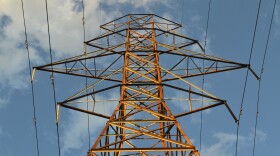Ann Arbor can meet its goal of 100% renewable power sources by 2030, but it will be tricky. That’s according to a study the city commissioned to look at the issue.
“The City of Ann Arbor has committed to using electricity generated only by renewable sources by 2030,” said the report, which was written by the consulting group 5LakesEnergy. “The current growth trajectory of renewables in Ann Arbor’s electricity supply will leave the city well short of 100% renewable energy ... in 2030.”
But the report goes on to say that it “found several plausible, if challenging, pathways for the city to achieve its 2030 A2 ZERO energy goals by deploying portfolios of energy resources that in each case depend on the applicable modeled utility structure.”
The report examined three possible utility structures: remaining with the city’s current power provider, DTE Energy; moving to a wholly city-owned and run model; or creating a city-owned Sustainable Energy Utility, which would provide renewable power alongside DTE, at least for a time.
“A Sustainable Energy Utility (SEU) would be a municipal utility supplemental to the existing electric load-serving entity (DTE),” the report explained. “The SEU would operate as an independent city utility with similar operations as other main public services, such as the Arbor Water Utility.”
Of the three possibilities, the report comes down on the SEU model as the most viable way to get to the 2030 goal. The authors argue that doesn’t necessary exclude the possibility of pursuing a fully municipal utility in the long run, but say that option isn’t likely to get the city to its climate goal. They suggest that solely pursuing the municipal route at this point is “a risky pathway” because it will take both time and significant funds to make that transition, and the city is unlikely to complete the process by 2030.
Nonetheless, the group Ann Arbor for Public Power, which is pushing for Ann Arbor to go for a municipal utility model, hailed the report’s findings. Executive Director Don Lee said the report determined the option was “feasible,” at least in the longer term.
“We have an opportunity to use ratepayer revenue in ways that are agreeable with ratepayers, which includes the expansion and acceleration of the transition to renewable energy,” Lee said. “We want to see ratepayer resources used to move decarbonization forward in a real and meaningful way.”
Lee points to data suggesting that municipal utilities, which are common throughout the country, are both cheaper and more reliable than their privately-owned counterparts. The city’s study agreed that in the long run, moving to a municipal model would be the most affordable option for ratepayers. The report did not assess the reliability of any of the three potential models.
5LakesEnergy calls Ann Arbor’s overall renewable energy goal and timeline “ambitious and largely unprecedented, regardless of the utility structure the city pursues.” It also suggested the city undertake a second, more detailed feasibility study to characterize more precisely the costs and risks of the MEU approach.” Ultimately, either Ann Arbor’s city government or a direct resident vote will decide which route the city should take.
Don Lee of Ann Arbor Public Power said that overall, the group is pleased with the report’s findings. “I think we're just really excited about the fact that we've gotten to this point, and we're looking forward to moving forward,” he said.
Editor's note: DTE Energy is one of Michigan Radio's corporate sponsors.





